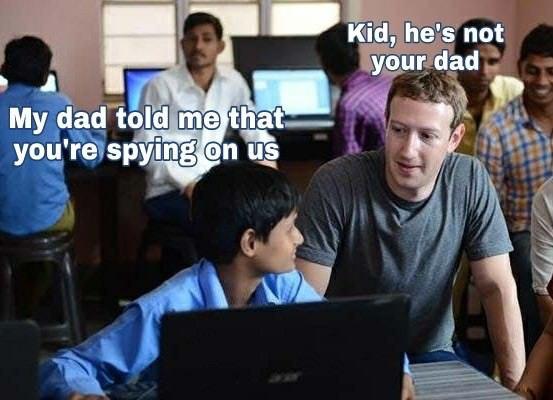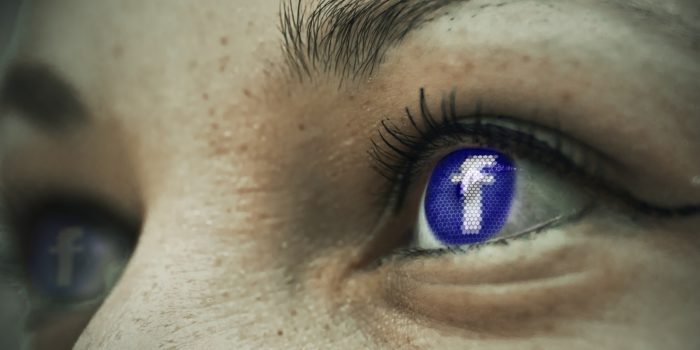1. Good Monday Morning
It’s Oct. 25th. Halloween is Sunday. The American Academy of Pediatrics has a guide to Halloween & COVID-19. Parents will want to also have a look at their general Halloween Guide. Both offer great advice although neither comments about sneaking that full-size Snickers out of your kid’s bag.
Today’s Spotlight is 1,442 words — about a 5 minute read.
2. News To Know Now
Quoted:”We need to steel ourselves for more bad headlines in the coming days, I’m afraid.” — Nick Clegg, Facebook VP of Global Affairs (and former UK Deputy Prime Minister) quoted exclusively by Axios yesterday.
a) A reporter erroneously branded as a “hacker” by Missouri Gov. Mike Parson and at least one of his sources do not yet have resolution on a state investigation of their activity and continue to face personal legal costs.
St. Louis Post Dispatch writer Josh Renaud and a University of Missouri professor who was one of his sources are being investigated at Parson’s direction. Renaud’s story disclosed that anyone viewing the public source code on state pages could see the social security numbers of school personnel. The command is available to any person using a web browser.
The newspaper notified the state and gave them time to correct the error before publishing the information. Parson’s reelection campaign ran an attack ad about the incident four days ago, days after the governor publicly ordered the investigation of the two men. (KCUR)
b) Also on Thursday, the Federal Trade Commission released a public report criticizing consumer privacy practices of internet service providers AT&T, Verizon, Comcast, and others. The report (PDF) says that the companies are “at least as intrusive” as advertising platforms, group consumers into sensitive economic, religious, and sexual orientation categories, collect unnecessary customer data, and share real-time location data with third parties. FTC Chairwoman Lina Khan called the breadth and granularity of the data collection “staggering.”
c) Reddit advertising revenues are expected to jump this year from $161 million to $305 million and reach $522 million in 2023, according to projections by eMarketer. The 16-year-old social news company with 40 million monthly average users is valued at $10 billion. Those are big numbers for a company that the public often overlooks.
3. Search Engine News — Image Search Ranking Changed & WordPress Takes On SEO
Responding to a growing chorus of voices demanding that companies accept responsibility for algorithm choices, Google recently changed its image search results to be more racially diverse, reports Bloomberg. Organizations have criticized Google’s image search algorithms since at least 2016. Critics point out that phrases related to skin, hairstyles, and even families and professionals do not accurately portray diverse races.
We’ve also learned that WordPress is planning to take on more responsibility to cope with Google’s new Core Vital Statistics ranking. A blunt internal proposal was reported by Search Engine Journal and acknowledged that the company was falling behind other platforms in reaching speed metrics that Google requires. About one-third of the world’s websites use WordPress. The company also has a 60% marketshare in sites using a content management system, far ahead of competitors like Drupal, Joomla, and Wix.
4. Spotlight Explainer — The Facebook Papers
The what? Didn’t we just do this with the former employee’s testimony to Congress?
Sort of. You’re thinking about The Facebook Files. That was the name of a series that The Wall Street Journal published earlier this month thanks to documents given to them by whistleblower Frances Haugen after she filed an SEC complaint about the company.
These are The Facebook Papers — a much bigger set of documents that were being investigated by a collaborative group of several dozen media companies. They were related to Haugen’s initial disclosure. Oh, and there’s also a second whistleblower now.
So what’s the scoop this time?
We don’t have all the details yet. Today was to be the day that the consortium members published their pieces at the same time. Instead, there was an argument or misunderstanding among the members on Friday night, and The New York Times led with its first piece. Others have followed, but only covering what the Times already disclosed. And then Axios quoted Facebook exec Nick Clegg, who warned Facebook employees this weekend that more exposes were coming.
So what do we know as of late Sunday?
We know that Facebook’s algorithms recommended conspiracy and misinformation groups to its own researchers, including pages about QAnon, when that group’s beliefs were allowed on the site.
We also learned that a Facebook researcher reported on November 9 that up to 10 percent of all US political comment views alleged there had been election fraud and that there was “also a fringe of incitement to violence.”
Misinformation and toxic content reaches far beyond the U.S. Specifically cited and new to this reporting is polarizing speech among Facebook’s 340 million users in India and corroboration of missteps in Myanmar.
One anecdote from The Facebook Papers sure to get more attention was the company’s decision to exempt Breitbart News from Facebook rules about false news reports. When questioned by an employee, Facebook executive Joel Kaplan reportedly responded, “Do you want to start a fight with Steve Bannon?”
Do you want to say something about the law of big numbers?
Yep. We humans don’t know how to tackle these issues. We don’t have another organization on our planet that is used by so many people. Consider those 340 million Facebook users among India’s 1.3 billion people. If Facebook reacted appropriately to 99.9% of content others posted on its site, that means that 340,000 people there would still be exposed to problematic content.
Anything else?
Look for Facebook to continue pointing out that it’s a platform and inviting anyone else to write platform rules and accept responsibility. Facebook will continue arguing that it doesn’t post videos of murders or hate-filled language based on race or gender. The company is closing in on 3 billion monthly active users.
5. Did That Really Happen? — What Let’s Go Brandon Really Means
While NBC Sports reporter Kelli Stavast interviewed winning NASCAR driver Brandon Brown at Talladega earlier this month, the crowd began chanting profanity about Pres. Joe Biden. Stavast told Brown she was having trouble hearing because the crowd was apparently chanting, “Let’s Go, Brandon,” which they clearly weren’t.
Since then, it’s become a staple of Republicans and conservative media. Rep. Bill Posey (R-FL) used it during a speech on the House floor on Thursday, and the phrase has been endorsed by Ted Cruz and now Fox pundits.
6. Following Up — Just Go Tech Coming To Fridges
We’ve written before about Amazon’s smart Go technology that allows shoppers to place items in their smart cart and leave when they’re done because the item was scanned and charged. Ars Technica has news that Amazon has spent $100 million developing a smart refrigerator that will track food stored inside and make ordering replacements easy. You can read about the fridge, but there is no function yet for determining which leftovers have gone bad.
7. Protip — Uninstall Cortana from Windows 10
We showed you last week how to upgrade to Windows 11. If you didn’t, we still have good news: you can uninstall Microsoft assistant Cortana from Windows 10.
8. Screening Room — John Oliver’s Car Commercial
The comedian recently made an offer to car dealers: record a script his writers created instead of one of the copy and paste jobs from national firms, and they could have it free. Heads up: there is some NSFW audio after the commercial.
9. Science Fiction World — The Orb & Worldcoin
Sam Altman’s resume is pretty good. He’s the former CEO of YCombinator, the startup accelerator that’s launched 3,000 companies including Stripe, DoorDash, Instacart, and Dropbox. And he’s the current CEO of OpenAI, the organization that created the GPT-3 language model.
Now he wants to create a universal basic income for the planet using a cryptocurrency called Worldcoin. Every person on Earth would get free Worldcoin if they consent to have their irises scanned.
It’s an audacious plan, but if you’re older than your mid-30s, consider that people didn’t always have online grocery delivery, easy file transfers between computers, and all the other things done by the companies he helped shepherd into our culture. Here’s a profile on the initiative that is already being tested in multiple countries.
10. Coffee Break — 13 Traditions That Were Really Marketing
I love this slideshow covering traditions and stories like Paul Bunyan (c. 1916 to sell lumber), green bean casserole (Campbell Soup in 1955 to sell soup), and the Pledge of Allegiance (written by a socialist minister in 1892 for his magazine and to help sell…flags). Read the stories here.
11. Sign of the Times

